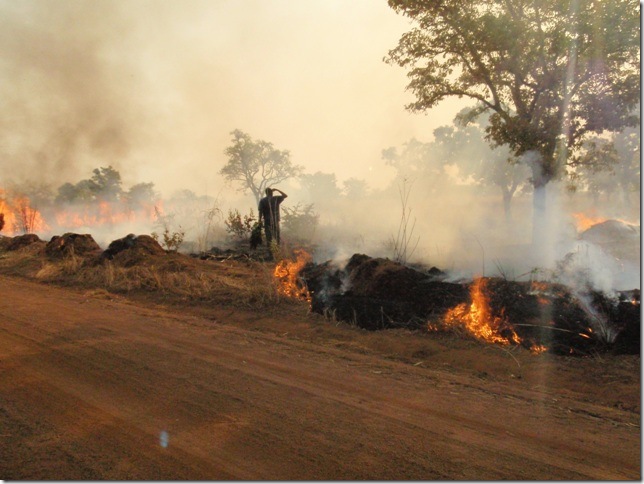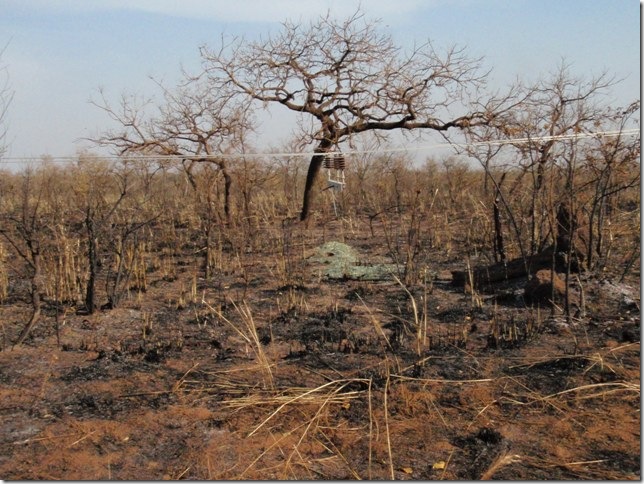It’s the dry season here in the North. I don’t remember what rain feels like on my skin or what it sounds like on the roof. The ground is parched. All vegetation is dead and brown. Sheep and goats wander aimlessly bah-ing in hunger. Dust clouds out the sun and covers every surface. It is dry, dry, dry.
To add to it all: the Northern Region is burning. Fires are rampaging fields and forests and savannahs. The smell of smoke and burning fills the air. Cattle egrets have a field day as insects stampede away from fire fronts. Fields and forests are quickly blackened and leave the landscape bare. Fires (mostly) intentionally set by people. Bush burning, as its called, is common across the Region. People will set fires to the bushes and grasses around their house for a variety of reasons: to smoke (fire?) out bush meat – for example, grasscutters (large cane rats), a delicacy in Ghana (pretty good!); to control pests, insects and snakes (Ghanaians are terrified of snakes); and, to clear slash and trees for fields and regenerate vegetation for grazing.
On the drive home from a remote district, I couldn’t believe the fires that lined the entire roadside for the whole four hour trip. We stopped at a particularly large fire, where a group of farmers were trying to beat back the large flames to protect their burning fields. The farmers were helpless against the ravenous fire fueled by dry vegetation. They said they had been told by a fellow villager that the fires were approaching their fields, had bicycled there and had been tackling the flames for a few hours. There was a sense of despair in their voice. It broke my heart.
Bush burning has a lot of negative effects, which are luckily coming to the attention of the government and at the latest Farmer’s Day – awareness of the issues around bush burning was a major theme of all the speeches. Obviously there is the danger of unmanaged fires and potential for damaged property and equipment. There is also the damage (and sometimes complete destruction) to fields and crops, destruction of economically important trees (such as shea nut trees), reduction in soil fertility, destruction of wildlife habitat (and many other local ecosystem effects) and the fragile savannah ecosystem, negative health effects from aerosols, and contribution to climate change. There have been some efforts at various districts to police bush burning (it is, in fact, illegal), but fires are often set at night and it is hard to trace who the culprits are to enforce the law.
Bush fires are also destroying infrastructure. We passed by what used to be an electrical pole. The wooden support reduced to ashes, and the metal frame and insulators left hanging attached to the transmission wires, affecting electricity provision.
So the dry season is the season of burning. Catching cane rats yes, but is it really worth it? How can you police such a widespread culturally acceptable, but illegal, behaviour? Bush burning must be brought under control for the sake of farmers, and inhabitants of the Northern Region (it is actually also becoming more of a problem across the rest of Ghana as well). It will be interesting to see if bush burning comes up as an issue in the election talks this year (parliamentary and presidential elections in Ghana will be held this December).





Is arson not a reason?
Do you know if this is as much of an issue in neighbouring countries as well? Thanks for sharing!